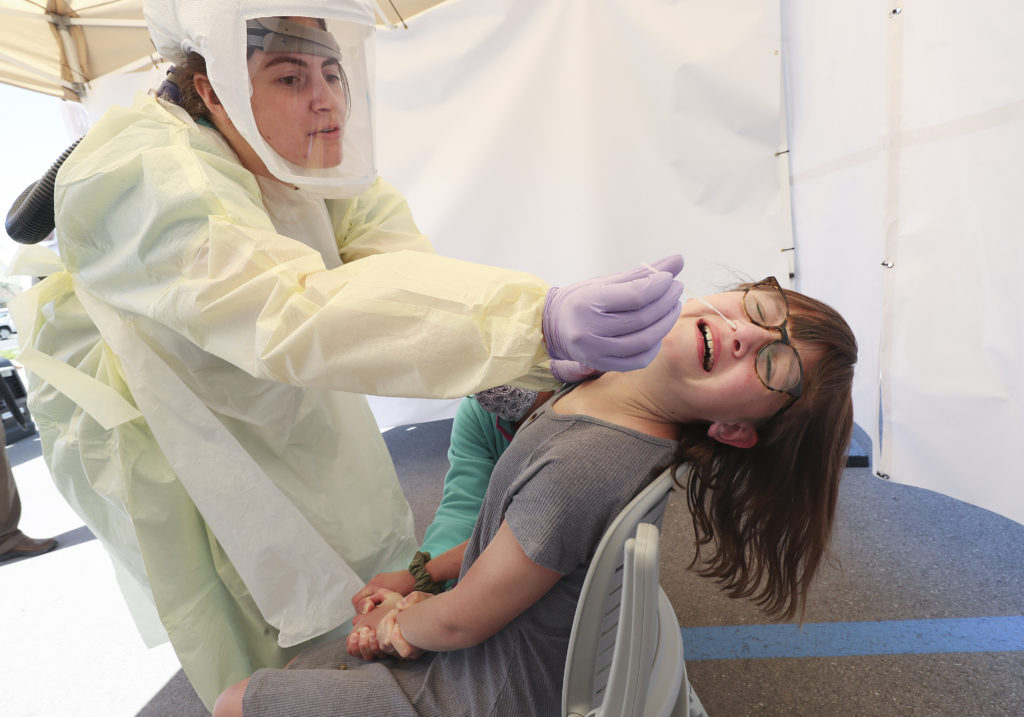Kathryn Hirtzel starts her night shift administering medications to her clients, gathering vitals, providing diabetic care and any necessary wound care. Hirtzel is an essential worker during the pandemic; she is a direct support professional for adults with developmental disabilities.

“My main concern is that we are forced to play a guessing game when monitoring the health of extremely high-risk individuals,” Hirtzel said.
Hirtzel says the panic buying of medical supplies has created extra stress both for her and her coworkers. Thermometers are hard for Hirtzel’s workplace to acquire, and she said not having accurate thermometers might allow workers with symptoms to be cleared for work and risk infecting their clients.
Working on site during a pandemic is optional for many, but those with jobs related to the health field still need to show up in person. They are finding the pandemic has impacted their work in more ways than one.
Tahani Quackenbush is a dental assistant and says her work has completely ceased since the increasing spread of COVID-19. Guidelines released by the CDC as the pandemic spread said all non-emergency dental procedures should be postponed. Those guidelines have left many like Quackenbush out of a job; for others, the guidelines have cut hours significantly.
“The shortage on our masks started in January, then we ran out of disinfectant wipes at the beginning of March. Those things are essential to keeping the staff safe and the patients we see safe from any harmful diseases,” Quackenbush said.
Her fears are shared among other medical assistants like Shelby Anderton, who works as a certified nursing assistant in Draper and said the shortages have impacted her work flow.
“We have backups for our supplies, but it’s still a fear that if this continues we might run out and not be able to properly care for our residents.” Anderton said.
Anderton said she will focus on providing the best care to her residents, and she is taking the necessary precautions to avoid exposure that could infect anyone in her workplace.
Many medical workplaces are scrambling to find necessary supplies to maintain a clean environment. Even hospital labs are finding themselves cutting back on employee hours to reduce possible exposure.
Russell Dyches works as a lab tech for Intermountain Healthcare in Mount Pleasant and said his workplace has not seen any confirmed cases but that they are on high alert. Dyches says Sanpete County has a large population of truck drivers, and he fears they could be easily exposed to the virus and bring it back to the rural areas.
Dyches said his workplace has cut back on any testing that isn’t deemed necessary, and he wouldn’t be surprised if hours start getting cut down.
Medical workers all over the state are urging non-essential workers to work from home and stay there unless it’s absolutely necessary to go out.
“It’s the best thing you can do for all of us who need to work during this uncertain time,” Hirtzel said.




